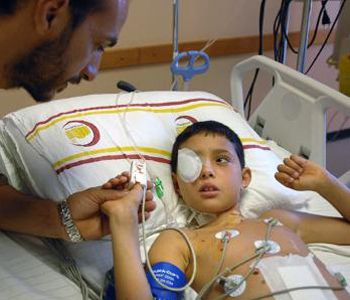Tripoli, 18 October:
Mahmoud Jibril, leader of the National Forces Alliance, is to be the key . . .[restrict]speaker in a conference on US-Middle East relations in Pittsburgh on 30 October. Organised by the American Middle East Institute (AMEI) and the US-Libya Business Association (USBLA) in partnership with the University of Pittsburgh, the conference is AMEI’s fifth such annual event.
Jibril spent several years during the early to mid-1980s in Pittsburgh. Both his master’s degree and his doctorate are from the University of Pittsburgh. He also taught at the university. He plans to spend much of the day after the conference on the university campus.
“We’re looking forward to hearing from this extraordinary leader, and welcoming him back to Pittsburgh,” said Simin Yazdgerdi Curtis, president and founder of AMEI.
“The University of Pittsburgh has been fortunate to partner with the American Middle East Institute in their past conferences, a series of unique and highly successful programs. We are particularly pleased to join with them in arranging for this special homecoming of a Pitt graduate who has played such a key and constructive role in the dramatic events that are still unfolding in such an important part of the world,” said Chancellor Mark Nordenberg of the University of Pittsburgh.
Jibril is scheduled to appear during a three-part evening program at Carnegie Music Hall hosted by former NBC Nightly News anchor Tom Brokaw. The concluding portion of the daylong conference will include Jibril, Prince Turki Al-Faisal (chairman of the Riyadh-based King Faisal Center for Research and Islamic Studies, and formerly Saudi Ambassador in Washington) and Middle Eastern students studying in Pittsburgh. During Jibril’s portion of the programme, a special tribute is planned for slain US Ambassador Chris Stevens.
“Libya is now in the midst of a successful transition to participatory democracy, with the formation of the first directly and freely elected Congress in the nation’s history and its tackling head-on the difficult security challenges in the aftermath of the revolution,” said Chuck Dittrich, Executive Director of USLBA and a Pittsburgh university alumnus. “Keys to comprehensive security and stability include job creation, creating a world-class healthcare infrastructure, establishing strategic partnerships in education and training and bringing innovative technology solutions to bear on Libya’s immediate challenges.”
Working closely with the US and Libyan governments, Dittrich’s organisation in April led the first US commercial delegation to Tripoli following the revolution and the first in memory to Benghazi.
[/restrict]







